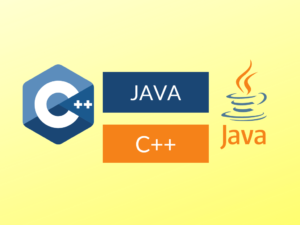Differences between final, finally, and finalize
What is/are final and finally?
Final and finally are keywords in the Java programming language. The keyword “final” is used to declare constants or make variables, methods, or classes unchangeable. On the other hand, “finally” is a block that follows a try-catch block and is used to write cleanup code that should be executed regardless of whether an exception was thrown or not.
Examples of final and finally:
Final:
final int MAX_VALUE = 100;
final class Circle { }
Finally:
try {
// Some code that may throw an exception
} catch (Exception ex) {
// Exception handling
} finally {
// Cleanup code to be executed
}
What is/are finalize?
“Finalize” is a method provided by the Object class in Java. It is called by the garbage collector when an object is about to be garbage collected. The purpose of the “finalize” method is to perform any necessary cleanup actions before the object is destroyed.
Examples of finalize:
@Override
protected void finalize() throws Throwable {
// Cleanup actions
super.finalize();
}
Differences Table:
| Difference Area | Final | Finally | Finalize |
|---|---|---|---|
| Usage | Used to declare constants or make variables, methods, or classes unchangeable. | Used in exception handling, following a try-catch block, to execute cleanup code. | Called by the garbage collector to perform necessary cleanup actions before object destruction. |
| Position | Can be used with variables, methods, or classes. | Used after the try or catch block. | A method provided by the Object class. |
| Keyword | final | finally | finalize |
| Inheritance | A final variable cannot be reassigned, a final method cannot be overridden, and a final class cannot be subclassed. | Does not affect inheritance. | Finalize is not used for inheritance-related purposes. |
| Exception Dependency | Not dependent on exceptions. | Used with try-catch blocks to handle exceptions. | Not dependent on exceptions, but can be used with exception handling. |
| Execution Order | Executed during runtime. | Executed after the preceding try-catch block, regardless of exception occurrence. | Called by the garbage collector prior to object destruction. |
| Multiple Usage | Can be used multiple times within the scope. | Used only once after the enclosing try-catch block. | There is only one finalize method defined per object. |
| Compilation | A final variable is evaluated at compile-time. | No effect on compilation. | Finalize method is not evaluated during the compilation phase. |
| Memory Management | No direct impact on memory management. | No impact on memory management. | Finalize method can affect memory management by releasing resources. |
| Availability | Available in Java. | Available in Java. | Available in Java. |
Conclusion:
The keywords “final” and “finally” are used in Java programming. “Final” is used to declare constants, make variables unchangeable, prevent method overriding, and prohibit class inheritance. “Finally” is used to execute cleanup code after a try-catch block, regardless of exception occurrence. On the other hand, “finalize” is a method provided by the Object class, which is called by the garbage collector before object destruction to perform necessary cleanup actions. These three concepts have different uses and purposes in the Java language.
People Also Ask:
- Q: What is the difference between final and finally?
- Q: How does finalize method work in Java?
- Q: Can finalize method be overridden?
- Q: When should I use the final keyword in Java?
- Q: Is the finally block always executed in Java?
A: The keyword “final” is used for declaring constants or making variables, methods, or classes unchangeable. “Finally” is used to execute cleanup code after a try-catch block, regardless of exception occurrence.
A: The “finalize” method is called by the garbage collector before object destruction. It allows an object to perform any necessary cleanup actions before being reclaimed by memory.
A: Yes, the “finalize” method can be overridden in a subclass to provide additional cleanup actions specific to that class.
A: The “final” keyword can be used when you want to declare constants, prevent method overriding, or prohibit class inheritance.
A: Yes, the “finally” block is always executed after the try-catch block, regardless of whether an exception was thrown or not.


